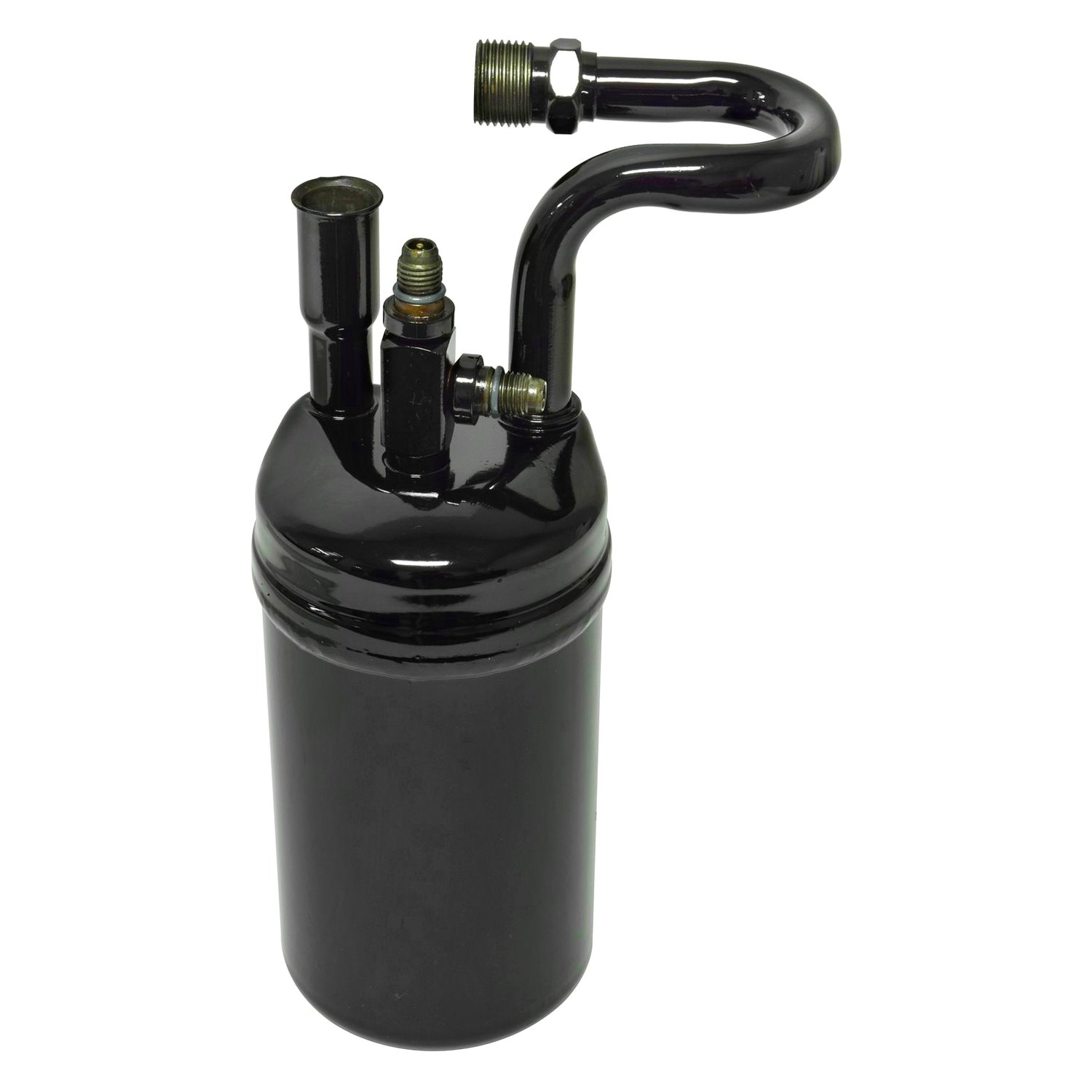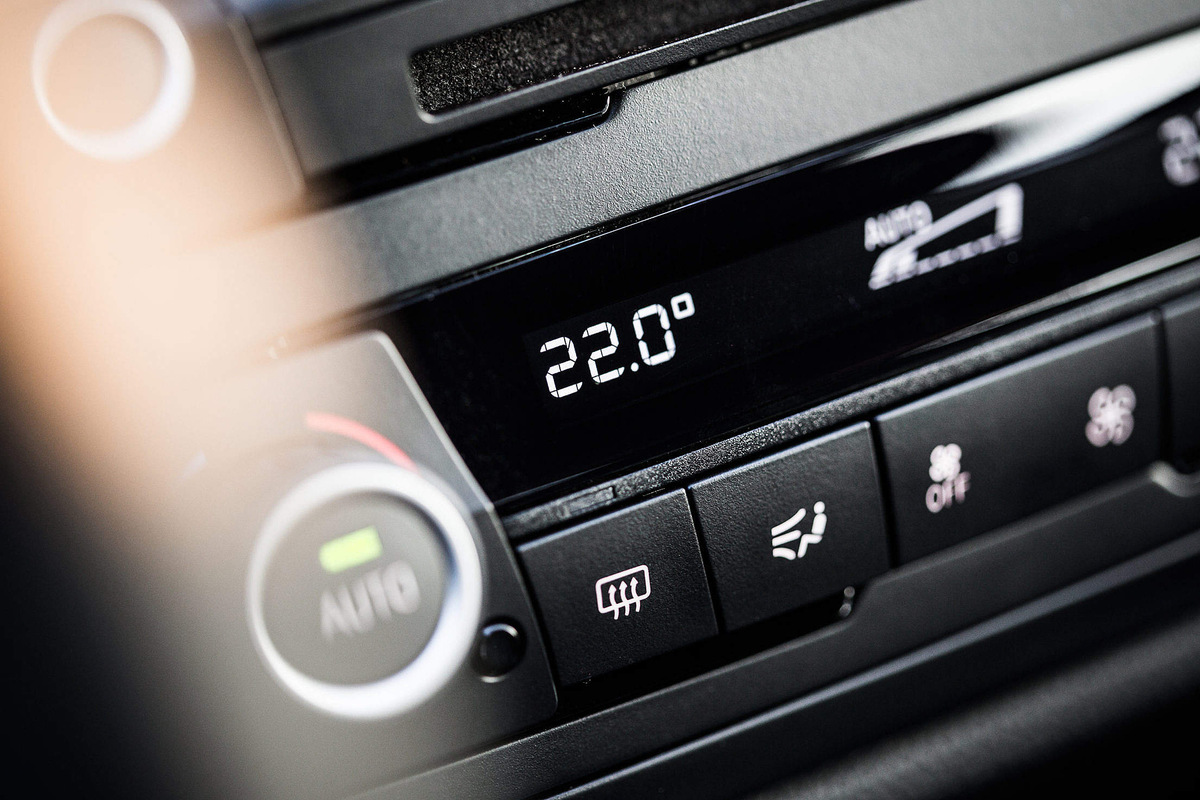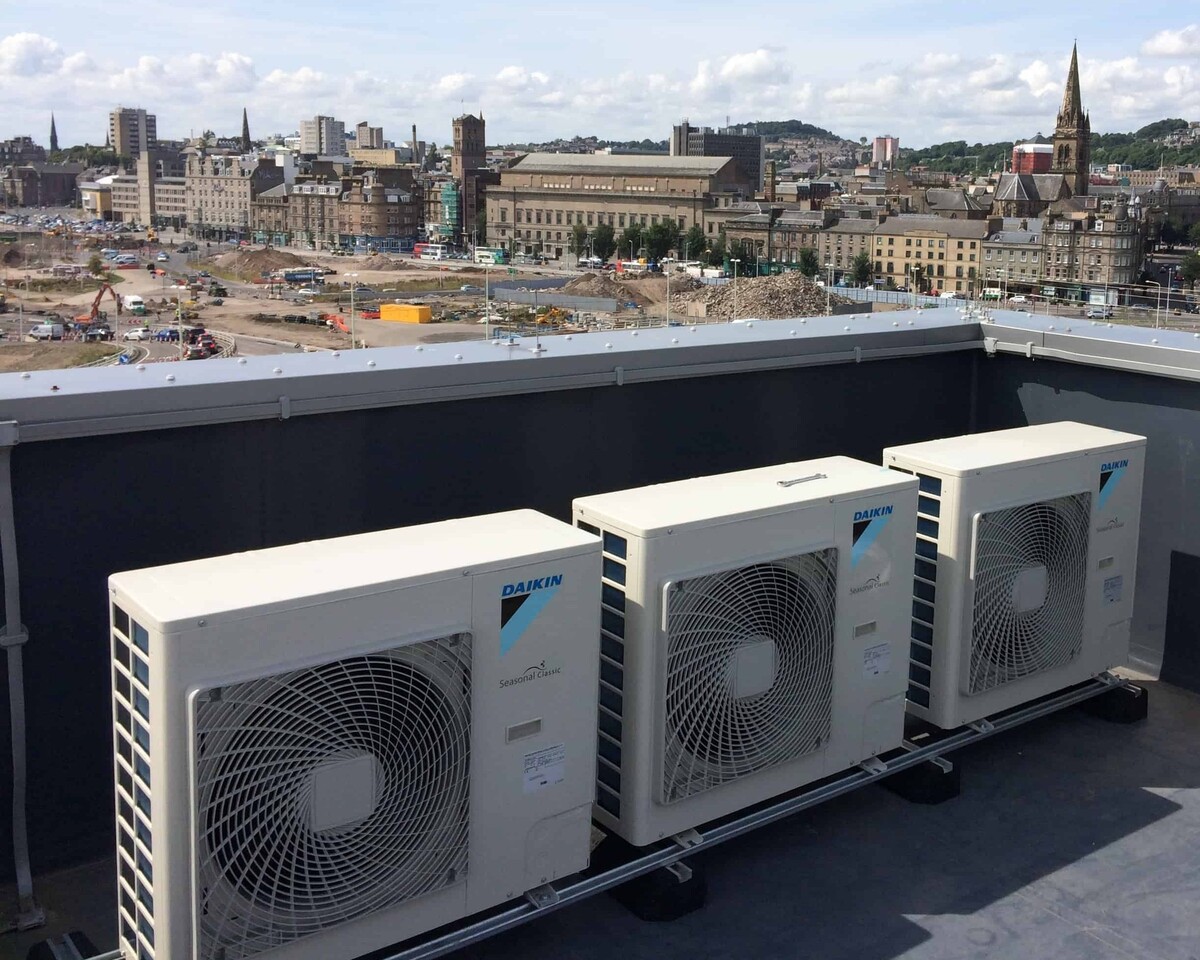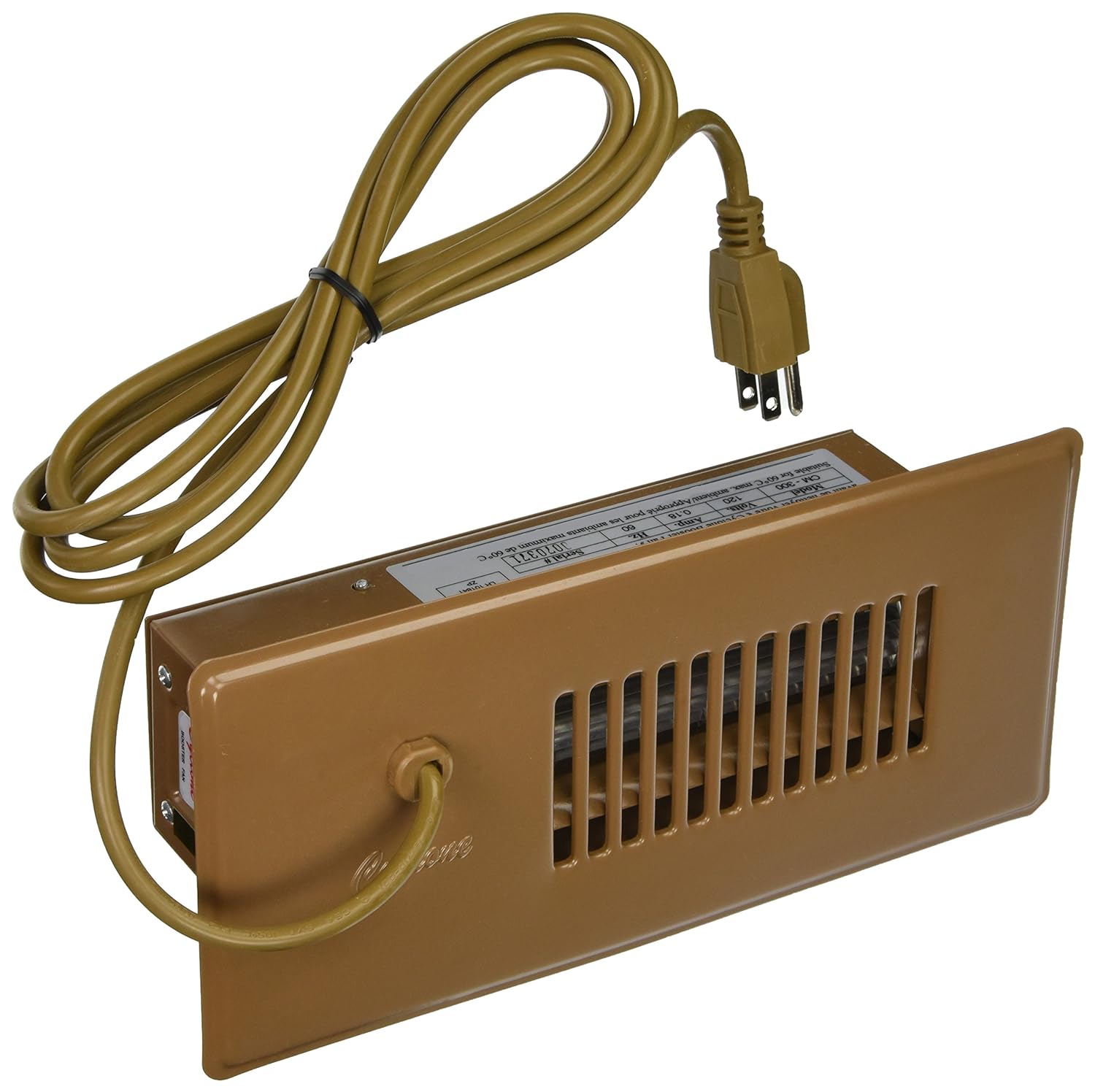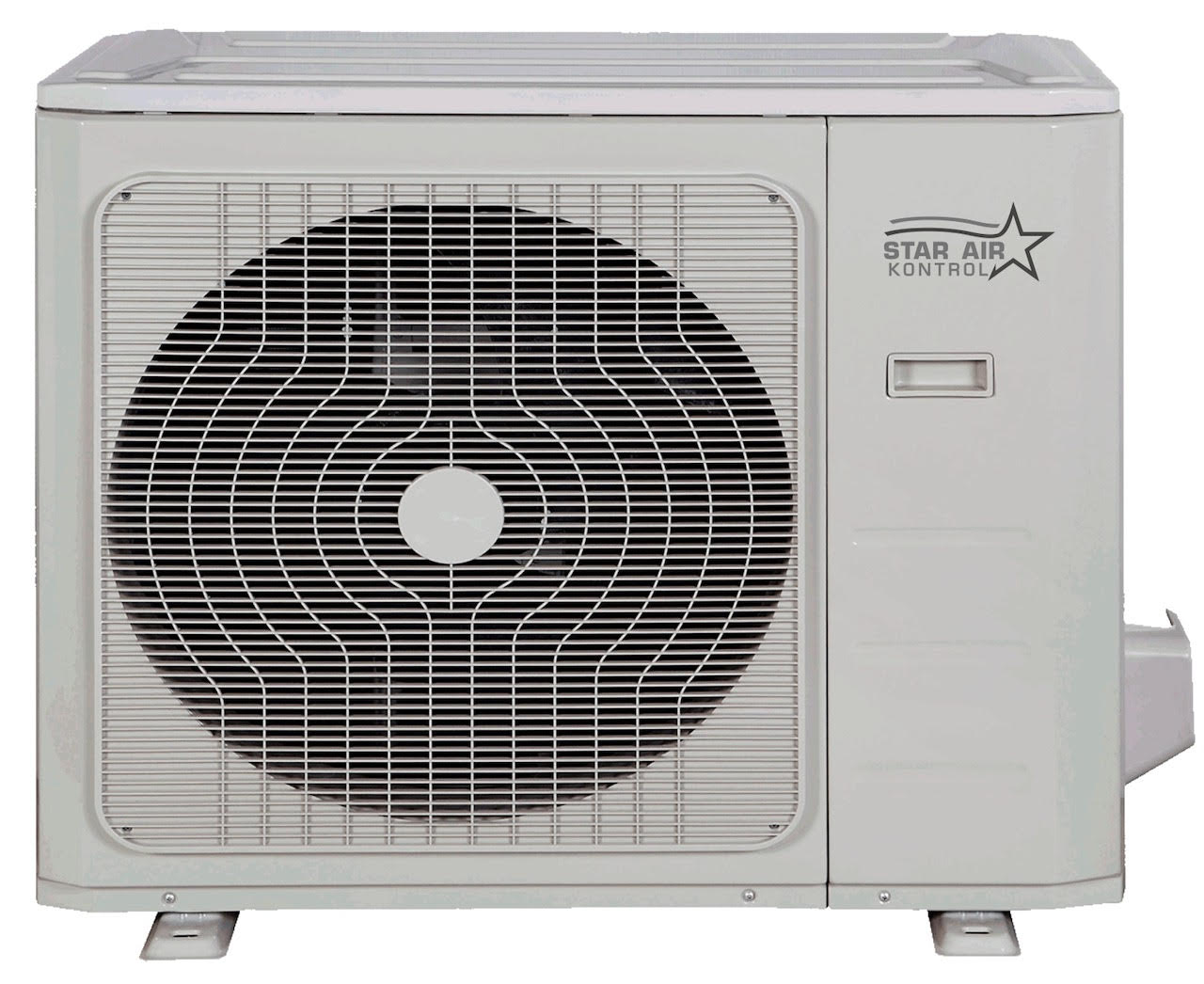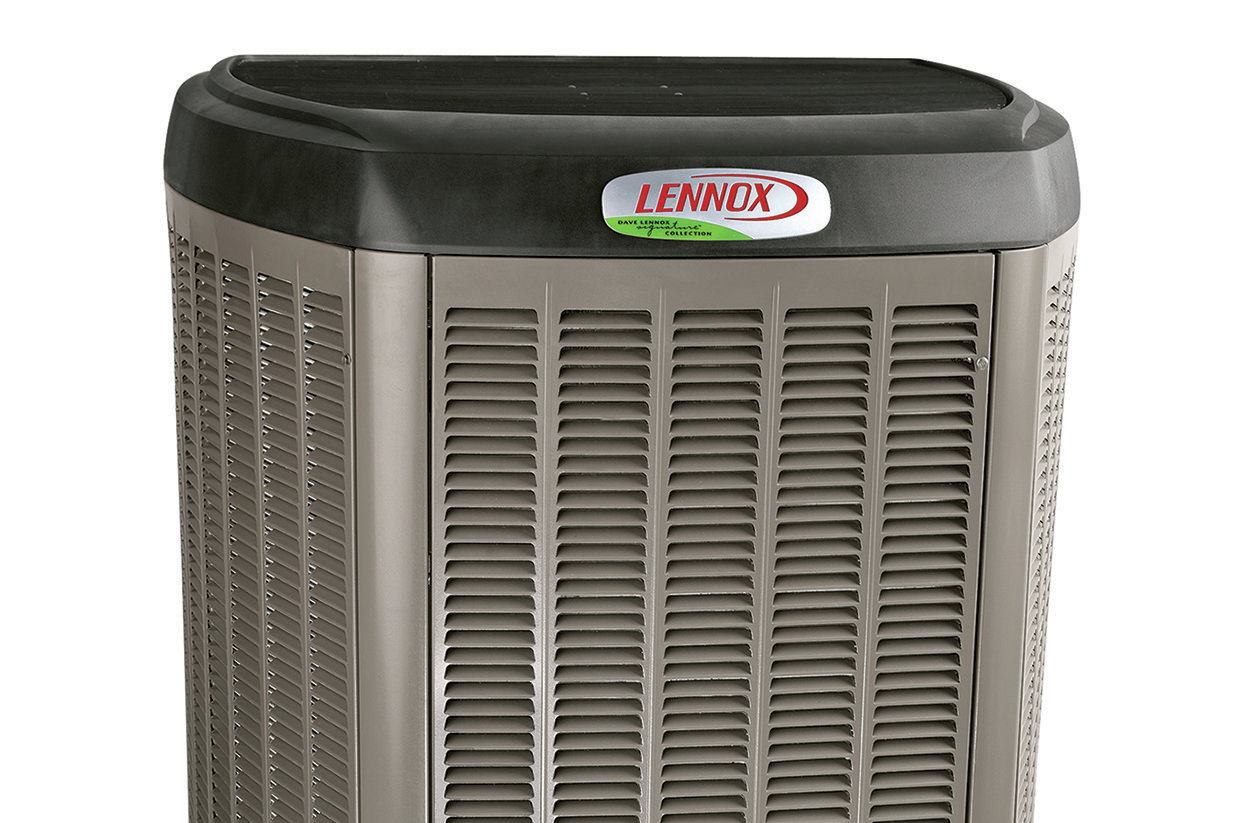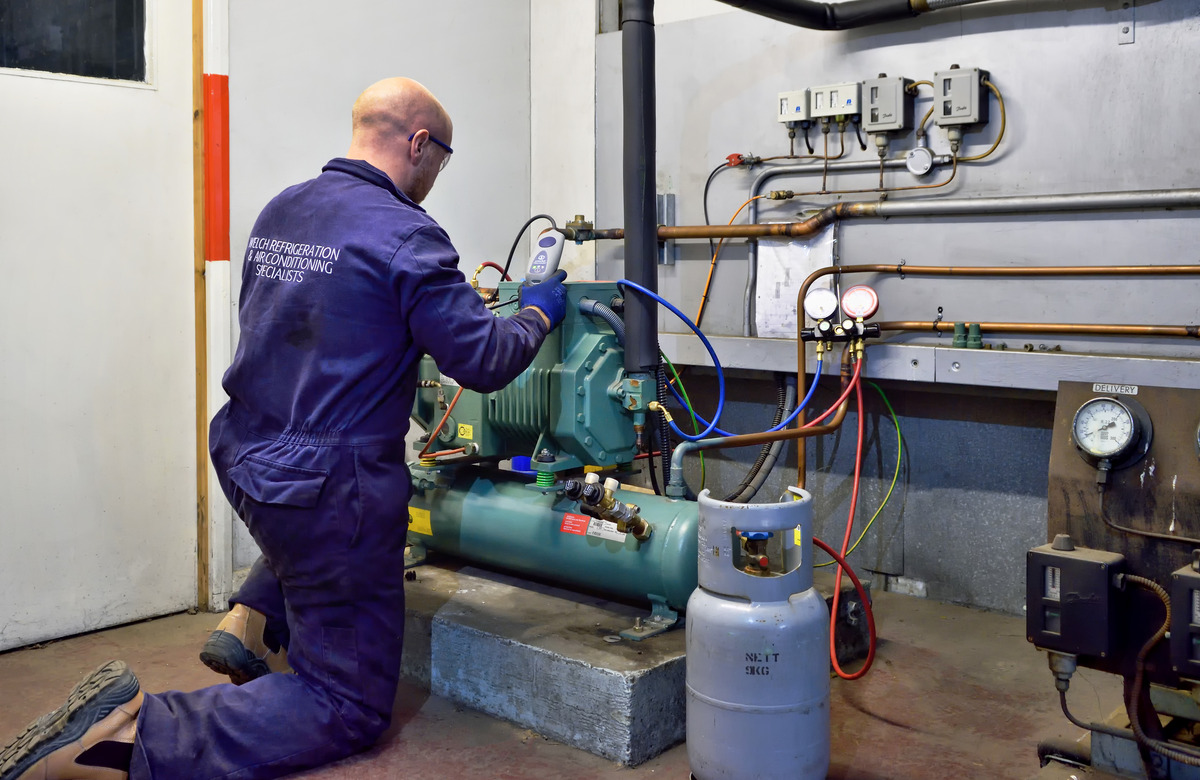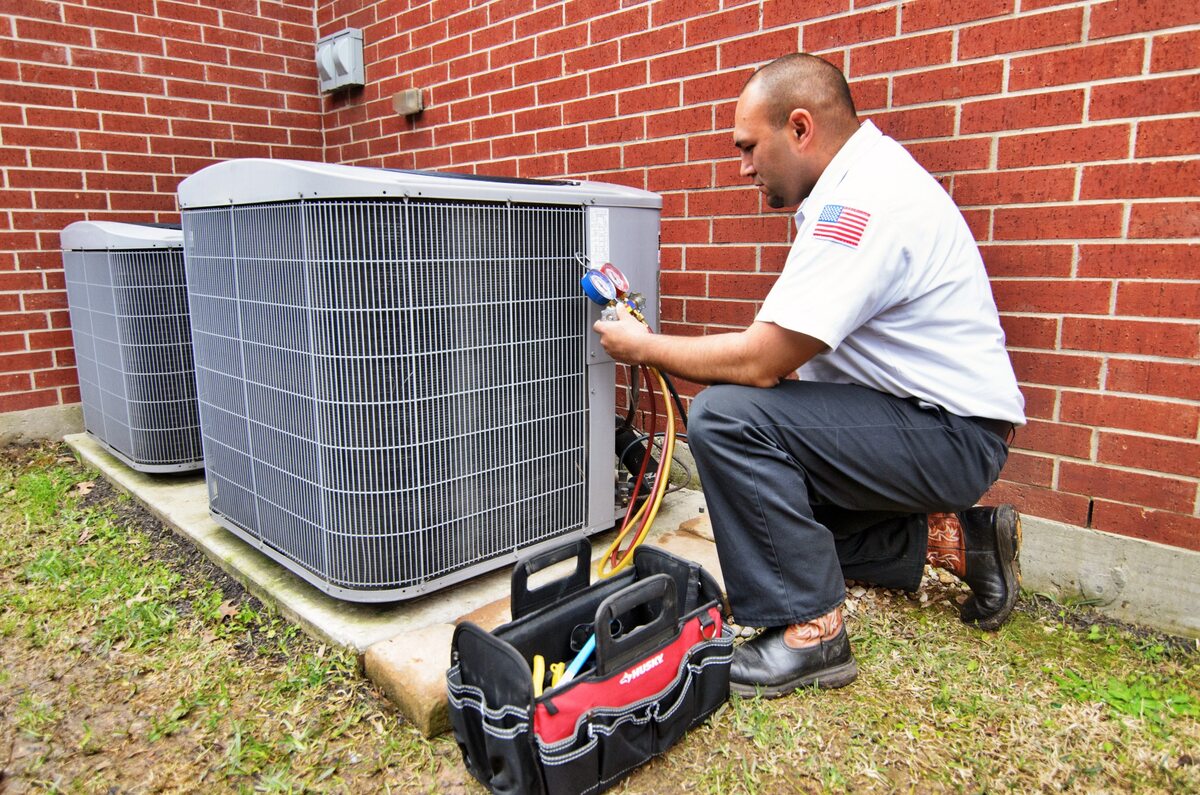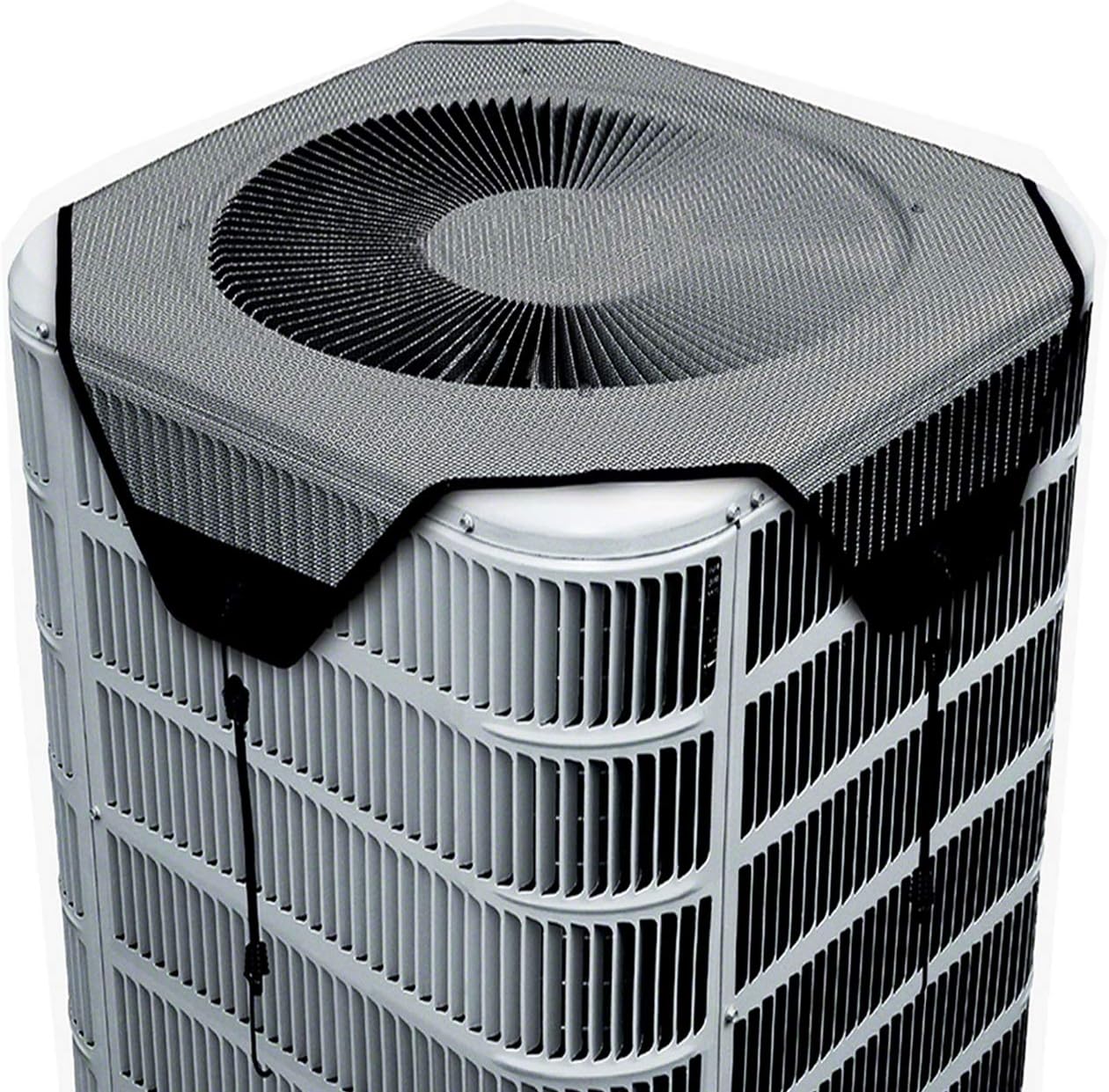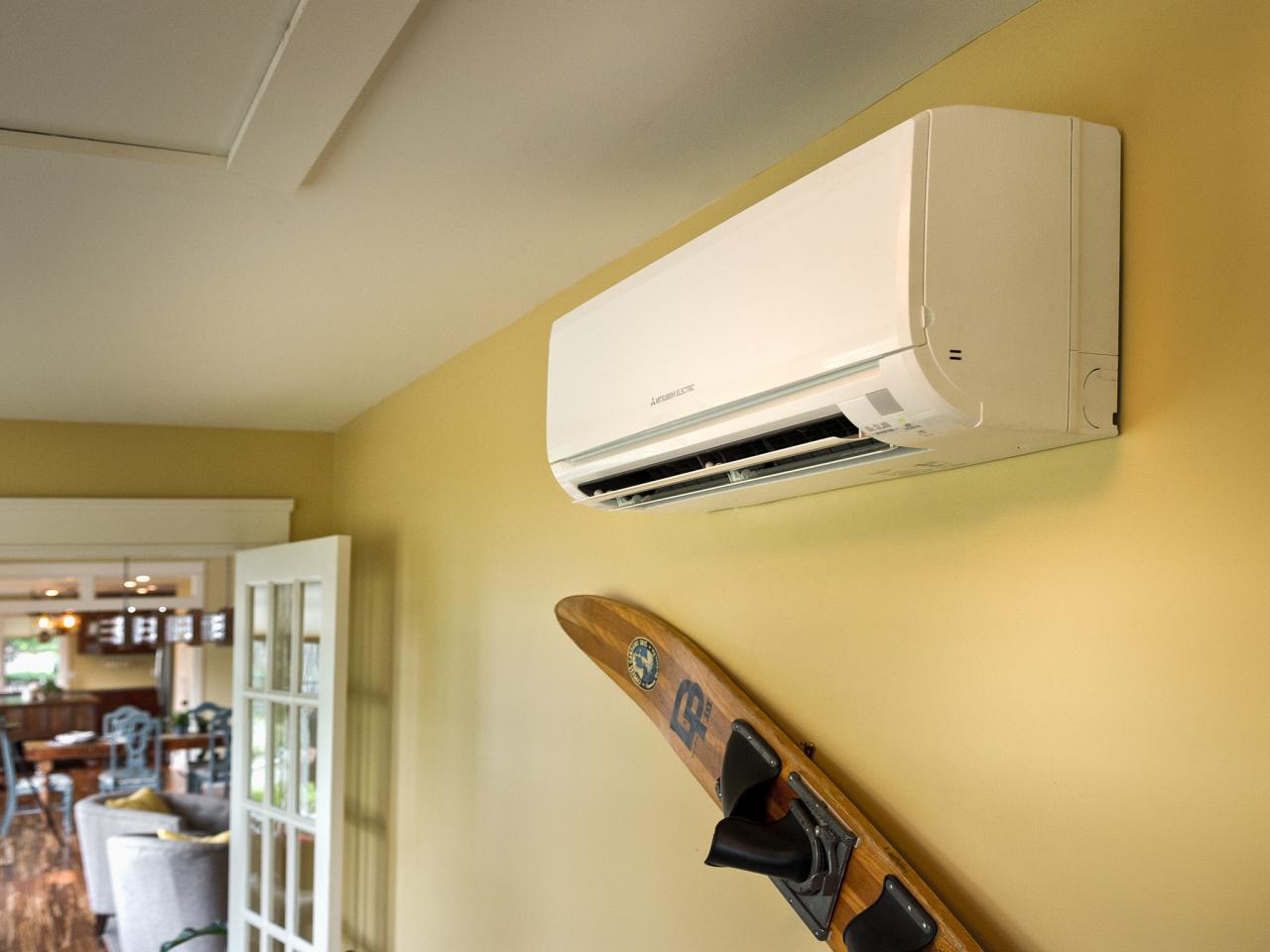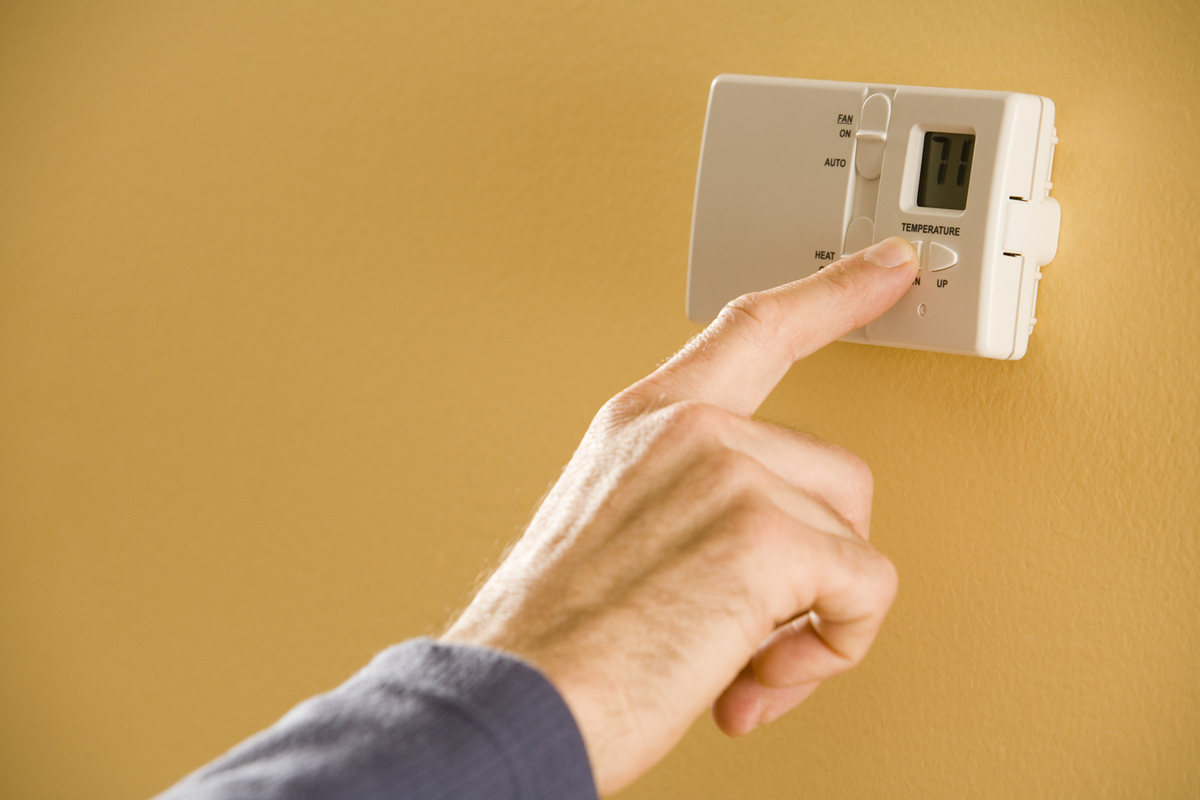Home>Home Maintenance>What Air Conditioning Does To Your Body
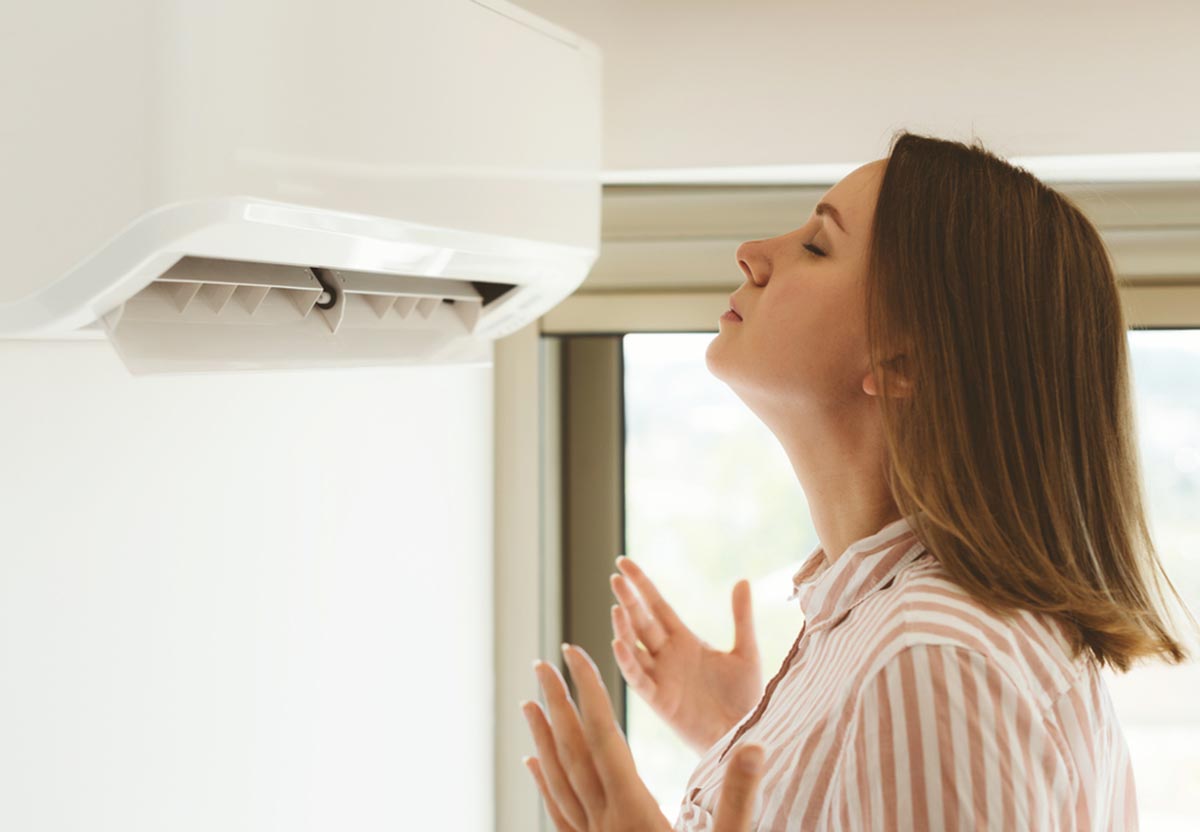

Home Maintenance
What Air Conditioning Does To Your Body
Modified: August 27, 2024
Discover the effects of air conditioning on your body and learn how to mitigate them with proper home maintenance.
(Many of the links in this article redirect to a specific reviewed product. Your purchase of these products through affiliate links helps to generate commission for Storables.com, at no extra cost. Learn more)
Introduction
When the scorching heat of summer becomes unbearable, air conditioners are a lifesaver, providing relief from the sweltering temperature outside. They create a comfortable and cool environment in our homes, workplaces, and cars. However, have you ever wondered about the impact air conditioning has on your body?
In this article, we will explore how air conditioners work and delve into the effects they can have on our bodies. From changes in body temperature to skin issues and respiratory discomfort, we will uncover the various ways air conditioning can affect our overall well-being.
It’s important to note that while air conditioning can provide immediate relief and comfort, prolonged exposure to cooler temperatures can have both short-term and long-term effects on our bodies. Understanding and minimizing these effects can help us maintain a healthier balance while enjoying the benefits of air conditioning.
So, let’s dive in and learn more about how air conditioners can impact our bodies.
Key Takeaways:
- Air conditioning can lower body temperature, but sudden changes can cause discomfort. Set moderate temperatures and take breaks to acclimate to outdoor conditions.
- To combat air conditioning’s effects on skin and hydration, use moisturizers, drink water, and consider using a humidifier to maintain healthy skin and prevent dehydration.
Read more: What Does Thyme Do For Your Body
How Air Conditioners Work
Before we delve into the effects of air conditioning on our bodies, let’s take a moment to understand how these cooling systems work. Air conditioners operate on the principles of heat transfer and refrigeration.
The primary component of an air conditioner is the refrigerant, a chemical compound that is responsible for absorbing and releasing heat. The process begins with the compressor, which compresses the refrigerant gas, causing it to become hot and high-pressure. This hot gas then flows into the condenser coil, where it releases heat to the outside environment, cooling down and transforming into a liquid state.
The liquid refrigerant then enters the expansion valve, which reduces its pressure and causes it to evaporate. This evaporation process absorbs heat from the surrounding air, cooling it down. The cool air is then blown into the room through the air conditioner’s blower fan. Meanwhile, the refrigerant, now in a low-pressure gas state, flows back into the compressor to restart the cycle.
By continuously cycling the refrigerant between high and low-pressure states, air conditioners remove heat from indoor air and expel it outside, creating a cooler environment.
Now that we understand the basic mechanics of air conditioning, let’s explore how this cooling process affects our bodies.
Impact on Body Temperature
One of the most noticeable effects of air conditioning on our bodies is the impact it has on our body temperature. When we step into an air-conditioned room on a hot day, we immediately feel a sense of relief as the cool air surrounds us.
Air conditioning helps lower our body temperature by creating a cooler environment and reducing our exposure to high outdoor temperatures. However, it’s important to be mindful of the sudden change in temperature. Going from extreme heat to a chilly air-conditioned room can cause our bodies to go into shock, leading to symptoms like shivering, numbness, or even a slight increase in blood pressure.
Additionally, spending long periods in an air-conditioned environment can impact our body’s natural ability to regulate temperature. Our bodies adapt to the surrounding temperature, and when we spend too much time indoors with the cool air, our internal thermostat may become less responsive. As a result, when we venture outside, we may become more sensitive to the heat, leading to discomfort and potential heat-related health issues.
To maintain a healthy body temperature balance, it’s important to find a middle ground. Rather than keeping the air conditioner at its lowest setting, opt for a moderate temperature that allows for some natural variation and mimics the outdoor climate, thereby reducing the shock to your body when you step outside.
Additionally, consider using programmable thermostats to create a temperature schedule that aligns with your daily activities. This allows for gradual adjustments in temperature and helps your body acclimate to different environments without significant temperature fluctuations.
By being mindful of the impact air conditioning has on our body temperature, we can strike a balance that ensures our comfort while minimizing the potential health risks.
Effects on Skin
Air conditioning can have both positive and negative effects on our skin. While it provides relief from the heat and humidity that can cause excessive sweating and discomfort, it can also lead to skin dryness and other issues.
When air conditioners cool the air, they also remove moisture from the environment. This can result in a decrease in humidity levels, leading to drier air. Dry air, combined with the cool breeze from the air conditioner, can strip the skin of its natural oils, leading to dryness, tightness, and potential irritation.
Furthermore, spending prolonged periods in air-conditioned environments can lead to a decrease in sweat production, as the need to cool down naturally diminishes. Sweat is essential for regulating body temperature and moisturizing the skin. When sweat production decreases, the skin may become dehydrated, resulting in a lack of moisture and a potential increase in the appearance of fine lines and wrinkles.
In addition to dryness, air conditioning can exacerbate certain skin conditions. Individuals with eczema, psoriasis, or other dermatological conditions may experience flare-ups due to the dryness and low humidity levels in air-conditioned environments. The lack of moisture in the air can disrupt the skin’s barrier function and increase skin sensitivity.
To combat these effects and maintain healthy skin, there are several steps you can take. First, it’s important to keep your skin hydrated by using moisturizers that are suitable for your skin type. Look for products that contain hydrating ingredients like hyaluronic acid or glycerin. Applying moisturizer regularly will help replenish the moisture lost due to the dry air in air-conditioned spaces.
Drinking plenty of water is also crucial for maintaining skin hydration. Staying well-hydrated from the inside out helps compensate for the lack of humidity in the environment.
Consider using a humidifier to add moisture to the air in your living or working space. This can help counteract the drying effects of the air conditioner and maintain a healthier level of humidity.
Lastly, avoid setting the air conditioner to the lowest temperature setting. Opt for a moderate setting that allows for a more balanced environment and reduces the direct blast of cool air on your skin. You can also use fans or natural ventilation to circulate air and minimize the direct impact of the air conditioner.
By taking these steps, you can help mitigate the negative effects of air conditioning on your skin and maintain a healthy, hydrated complexion.
Dehydration and Dryness
One of the main issues associated with air conditioning is dehydration and dryness. As air conditioners cool the air, they also remove moisture from the environment, leading to decreased humidity levels. This reduction in humidity can have a significant impact on our body’s hydration levels.
When the air is dry, our bodies naturally lose moisture through evaporation from the skin and respiratory system. This process is exacerbated in air-conditioned environments, as the cool air and low humidity can accelerate moisture loss. As a result, we may experience symptoms of dehydration such as dry mouth, thirst, fatigue, and increased susceptibility to headaches.
In addition to general dehydration, air conditioning can also lead to dryness of the eyes, nose, and throat. When the air lacks moisture, it can cause irritation and discomfort in these sensitive areas. Dry eyes can become red, itchy, and irritated, increasing the risk of eye infections. Dry nasal passages can lead to congestion, nosebleeds, and discomfort. Dry throat can cause scratchiness, hoarseness, and difficulty swallowing.
To combat dehydration and dryness caused by air conditioning, it is important to prioritize hydration. Drink plenty of water throughout the day to replenish the lost moisture. You can also include other hydrating beverages such as herbal tea or infused water to keep your body hydrated.
In addition to drinking water, using a moisturizer can help combat dryness of the skin. Choose a moisturizer that is appropriate for your skin type and apply it regularly to keep your skin hydrated. Consider using a hydrating mist or facial spray to refresh and moisturize your face throughout the day.
Adding plants to your indoor space can also help increase humidity levels. Plants release moisture through a process called transpiration, which can help counteract the drying effects of air conditioning and improve the overall air quality.
Lastly, using a humidifier can be beneficial, especially in bedrooms or other frequently used spaces. A humidifier adds moisture to the air, creating a more comfortable environment and preventing excessive drying of the skin, eyes, and respiratory system.
By taking these measures, you can minimize the risk of dehydration and dryness caused by air conditioning and maintain proper hydration and comfort.
Read more: What Does A Hot Tub Do For Your Body
Respiratory Issues
Air conditioning can have both positive and negative effects on our respiratory system. While it provides relief from hot and humid weather, it can also contribute to respiratory issues, especially if not properly maintained.
One of the primary concerns associated with air conditioning is the circulation of indoor air. When air conditioners are not regularly cleaned and maintained, they can become a breeding ground for allergens, dust mites, mold, and other pollutants. The recirculation of contaminated air can lead to the worsening of respiratory conditions such as allergies, asthma, and sinusitis.
In addition, the dry air produced by air conditioners can irritate the respiratory system. It can cause dryness and inflammation in the nasal passages, leading to congestion, sneezing, and discomfort. Dry air can also exacerbate existing respiratory conditions, making breathing more difficult for individuals with asthma or chronic obstructive pulmonary disease (COPD).
To minimize the risk of respiratory issues caused by air conditioning, it’s important to maintain proper indoor air quality. Regularly clean and replace air filters to ensure they are free from dust and pollutants. Consider using high-efficiency particulate air (HEPA) filters, which can effectively trap allergens and other airborne particles.
Keep the air conditioning unit clean by regularly wiping down the vents and ensuring that there is no accumulation of dust or mold. If you suspect mold growth, it’s important to have a professional inspection and remediation done to avoid further respiratory complications.
Using a humidifier in conjunction with air conditioning can also help alleviate respiratory symptoms. The added moisture in the air can soothe dry nasal passages and reduce irritation. However, it’s important to clean and maintain the humidifier properly to prevent the growth of mold and bacteria.
Additionally, keep windows and doors open whenever possible to allow for fresh air circulation. This can help reduce the concentration of indoor air pollutants and improve overall air quality.
If you have pre-existing respiratory conditions, consult with your healthcare provider for specific recommendations on managing air conditioning and minimizing potential respiratory issues.
By taking these precautions and maintaining proper indoor air quality, you can enjoy the benefits of air conditioning while minimizing the risk of respiratory complications.
To prevent the negative effects of air conditioning on your body, try to maintain a comfortable temperature, stay hydrated, and take breaks from the cold air to warm up.
Allergies and Asthma
For individuals with allergies and asthma, air conditioning can be a double-edged sword. While it helps filter out allergens and provide relief from outdoor triggers, improperly maintained air conditioning systems can actually worsen allergy and asthma symptoms.
Air conditioners play a crucial role in filtering the air, trapping airborne allergens such as pollen, dust mites, pet dander, and mold spores. This can provide significant relief for individuals with allergies, as it helps remove these triggers from the indoor environment. However, if the air filters are not cleaned or replaced regularly, they can become clogged with allergens, reducing their effectiveness and potentially circulating allergens back into the air.
In addition, if moisture accumulates in air conditioning systems, it can create an environment that is conducive to mold growth. Mold spores can then be released into the air and trigger allergic reactions or worsen asthma symptoms in susceptible individuals.
To minimize the risk of allergies and asthma flare-ups due to air conditioning, regular maintenance is essential. Clean or replace air filters according to manufacturer guidelines to ensure that they are effectively removing allergens from the air. Consider using high-quality HEPA filters, which have a higher efficiency in capturing allergens and pollutants.
Keep the area around the air conditioning unit clean and free from debris to prevent mold growth. Check and clean the condensate drain regularly to prevent water buildup. If you detect a musty odor or suspect mold growth, contact a professional for inspection and remediation.
Furthermore, maintaining a proper level of humidity can also help manage allergies and asthma. Aim for a humidity level of around 40-50%. Using a humidifier in conjunction with air conditioning can add moisture to the air and help alleviate dryness and irritation. However, it’s important to monitor the humidity level and clean the humidifier regularly to prevent mold and bacteria growth.
If you have allergies or asthma, it’s important to consult with your healthcare provider to develop an individualized plan for managing your condition in relation to air conditioning. They can provide specific recommendations and prescribe appropriate medications to help control symptoms.
By maintaining a clean and well-maintained air conditioning system, you can enjoy the benefits of filtered air while minimizing the risk of allergy and asthma exacerbations.
Eye Irritation
Eye irritation is a common complaint among individuals who spend significant time in air-conditioned environments. The dry and cool air produced by air conditioners can contribute to several eye-related issues, including dryness, redness, itching, and even blurred vision.
When the humidity levels drop due to air conditioning, the natural tears that lubricate our eyes evaporate more quickly, resulting in dryness. This can cause discomfort and a gritty sensation in the eyes. Prolonged dryness can also lead to redness, inflammation, and an increased risk of eye infections.
Furthermore, the recirculation of air within air-conditioned spaces can cause the concentration of dust, allergens, and other irritants to increase. These airborne particles can come into contact with our eyes, leading to further irritation and discomfort.
To alleviate eye irritation caused by air conditioning, there are several steps you can take. First and foremost, remember to blink regularly. When we focus on screens or other tasks, we tend to blink less frequently, which can contribute to dryness. Blinking helps spread the tears across the surface of the eyes, providing much-needed moisture.
Using lubricating eye drops or artificial tears can also help alleviate dryness and provide relief. These eye drops are designed to mimic the natural tears and can help replenish moisture to the eyes. Consult with an eye care professional to determine the best eye drops for your specific needs.
Keeping the eyes hydrated from the inside out is equally important. Stay well-hydrated by drinking plenty of water throughout the day. This helps maintain overall body hydration, including the moisture levels in your eyes.
Consider using a desktop or portable humidifier in your workspace or bedroom. Adding moisture to the air can help prevent excessive dryness and reduce eye irritation.
Avoid direct exposure to the cool air from the air conditioner. Position yourself in a way that minimizes the direct airflow towards your face and eyes. You can use fans or adjust the air conditioner vents to redirect the airflow and minimize direct impact.
Finally, ensure that your air conditioning unit is clean and well-maintained. Regularly clean and replace filters to prevent the accumulation of dust and allergens that can exacerbate eye irritation.
If you experience persistent or severe eye irritation, it’s important to consult with an eye care professional. They can evaluate your symptoms, provide appropriate treatment, and offer personalized recommendations to manage eye irritation caused by air conditioning.
By following these tips and taking proactive measures, you can help alleviate eye irritation and maintain healthier, more comfortable eyes in air-conditioned environments.
Muscular Discomfort
Air conditioning can sometimes contribute to muscular discomfort, especially if you spend prolonged periods in cold or drafty environments. The cool air produced by air conditioners can cause muscle tension, stiffness, and even cramps in some individuals.
When exposed to cold air, the muscles in our body can contract in an attempt to generate heat and maintain body temperature. This involuntary muscular response can lead to discomfort and tension, particularly in the neck, shoulders, and back.
Sitting or sleeping directly in front of an air conditioner’s air vents can also contribute to muscular discomfort. The continuous cold airflow hitting specific areas of the body can lead to localized muscle tension and discomfort.
To alleviate muscular discomfort caused by air conditioning, it’s important to create a comfortable and balanced environment. Adjust the air conditioning temperature to a moderate setting that is not too cold. This can help prevent abrupt temperature changes and reduce the potential for muscle tension.
If possible, avoid sitting or sleeping directly in the path of the cold air coming from the air conditioner. Position yourself in a way that minimizes exposure to direct airflow, or use a fan to help distribute the air more evenly throughout the room.
Stretching and gentle exercises can also help relieve muscle tension and prevent stiffness. Take frequent breaks to stretch your neck, shoulders, and back. This can help improve blood circulation and promote muscle relaxation.
If you experience muscular discomfort, applying a warm compress or taking a warm shower can help relax the muscles and provide relief. Heat can help increase blood flow and promote muscle relaxation. Alternatively, using a heating pad or electric blanket can also help alleviate muscle tension.
Maintaining a proper posture and ergonomics throughout the day is important as well. Sit in chairs with proper lumbar support and adjust your workstation to an ergonomic setup that promotes good posture. This can help prevent muscle strain and reduce the risk of discomfort.
If muscular discomfort persists or becomes severe, it’s important to seek medical advice. A healthcare professional can evaluate your symptoms, provide appropriate treatment, and offer personalized recommendations to manage muscular discomfort caused by air conditioning.
By taking these measures and creating a more comfortable environment, you can minimize the risk of muscular discomfort and enjoy the benefits of air conditioning without the associated muscle tension.
Read more: What Is Air Conditioning
Mental Health Effects
While air conditioning provides physical comfort, it’s important to recognize that it can also have an impact on our mental well-being. The environment we are in plays a significant role in our mental health, and air conditioning can contribute to both positive and negative effects.
On the positive side, air conditioning can help create a more comfortable and conducive environment for work, relaxation, and sleep. When the temperature is too hot and humid, it can lead to feelings of lethargy, irritability, and difficulty concentrating. Air conditioning can help alleviate these issues, allowing us to feel more alert, focused, and productive.
In hot climates, air conditioning can also provide relief from heat-related stress and fatigue. By creating a cool and comfortable space, it can help promote relaxation and enhance overall mood and well-being.
However, there are also potential negative effects on mental health associated with air conditioning. Spending long periods in cold environments can lead to feelings of isolation and disconnection from the natural world. The lack of exposure to natural elements and fresh air can have an impact on our mental state, potentially contributing to feelings of restlessness or even cabin fever.
Additionally, excessively cold air conditioning can affect sleep quality. Studies have shown that very low temperatures can disrupt sleep patterns and lead to feelings of fatigue and grogginess. Restful sleep is crucial for maintaining good mental health, so it’s important to find a balance with air conditioning settings that promote optimal sleep conditions.
Moreover, air conditioning can sometimes lead to a sense of detachment from the outside world. When we are constantly shielded from hot weather, we may miss out on outdoor activities, social interactions, and the simple pleasures of feeling the natural warmth of sunlight on our skin. This can impact our mood and overall mental well-being.
To mitigate the potential negative effects and promote better mental health in relation to air conditioning, consider the following tips:
- Take breaks and spend time outdoors or in naturally ventilated areas to reconnect with the outside world.
- Set the air conditioner to a moderate temperature that is comfortable but not excessively cold.
- Practice mindfulness and relaxation techniques to reduce stress and promote a sense of well-being.
- Ensure proper ventilation in the air-conditioned space to promote fresh air circulation.
- Regularly engage in physical activity, as it can help boost mood and reduce the impact of sedentary indoor activities.
By being mindful of the potential mental health effects, finding a balance, and incorporating these tips into your routine, you can optimize the benefits of air conditioning while maintaining good mental well-being.
Tips for Minimizing the Impact
While air conditioning offers relief from the heat, it’s important to minimize its potential negative effects on our bodies and overall well-being. By taking a few simple steps, you can optimize your comfort while reducing the impact of air conditioning. Here are some tips to consider:
- Set your thermostat to a moderate temperature: Instead of blasting the air conditioner at its lowest setting, choose a temperature that is comfortable but not excessively cold. This can help prevent sudden temperature changes and minimize the shock to your body when you step outside.
- Use fans and natural ventilation: Instead of relying solely on air conditioning, make use of fans and natural airflow to circulate the air in the room. This can help reduce direct exposure to cold air and create a more balanced environment.
- Stay hydrated: Air conditioning can contribute to dehydration, so make sure to drink plenty of water throughout the day. Proper hydration is essential for maintaining overall health and well-being.
- Maintain proper humidity levels: Dry air produced by air conditioners can lead to discomfort and skin issues. Consider using a humidifier or placing bowls of water in the room to add moisture to the environment.
- Clean and maintain your air conditioning unit: Regularly clean and replace air filters to ensure they are free from dust and pollutants. Keep the surrounding area clean to prevent mold growth. Proper maintenance can improve indoor air quality and minimize potential health risks.
- Take regular breaks: Spending excessive time in air-conditioned environments can have a negative impact on your well-being. Take breaks to go outside, get some fresh air, and expose yourself to natural elements.
- Practice proper posture and ergonomics: Sitting for long periods in cold environments can contribute to muscle tension and discomfort. Maintain good posture and use ergonomic furniture to minimize the risk of muscular discomfort.
- Investigate energy-efficient alternatives: Consider energy-efficient air conditioning options that provide optimal cooling while minimizing environmental impact. These alternatives often have features to regulate temperature and airflow more effectively.
- Consult with healthcare professionals: If you have pre-existing health conditions or experience symptoms that persist or worsen due to air conditioning, consult with healthcare professionals. They can provide personalized recommendations and guidance based on your specific needs.
By implementing these tips, you can strike a balance between enjoying the benefits of air conditioning and minimizing its potential risks. Remember, it’s important to listen to your body and make adjustments as needed to ensure your well-being while staying cool and comfortable.
Conclusion
Air conditioning has become an integral part of our lives, providing relief from hot and humid weather. While it offers immediate comfort, it’s important to be mindful of its impact on our bodies and overall well-being. Understanding the effects of air conditioning can help us make informed choices and minimize any negative consequences.
We have explored how air conditioners work and their impact on body temperature, skin, hydration, respiratory system, allergies, eyes, muscles, and mental health. While air conditioning can provide relief, prolonged exposure to cool temperatures and low humidity can lead to dryness, dehydration, respiratory issues, and muscular discomfort. It can also have an impact on mental health and the connection with the natural world.
To minimize these effects, we need to find a balance. Setting the thermostat to a moderate temperature, using fans and natural ventilation, staying hydrated, maintaining proper humidity levels, and practicing good self-care are essential. It’s crucial to keep the air conditioning unit clean, take breaks to reconnect with nature, prioritize proper posture, and consider energy-efficient alternatives.
Remember, everyone’s tolerance to air conditioning varies, and it’s important to listen to your body. If you have pre-existing health conditions or experience persistent symptoms, it’s advisable to consult with healthcare professionals who can provide personalized recommendations.
Air conditioning is a valuable tool for staying cool and comfortable, but it’s essential to use it in a way that promotes our well-being. By being aware of the potential effects and implementing the tips we’ve discussed, we can create a more balanced and healthier environment for ourselves.
So, next time you seek the comfort of air conditioning, remember to strike a balance, stay hydrated, remain connected with nature, and prioritize your well-being. Enjoy the benefits of air conditioning responsibly and make the most of a cool and comfortable environment without compromising your health.
Frequently Asked Questions about What Air Conditioning Does To Your Body
Was this page helpful?
At Storables.com, we guarantee accurate and reliable information. Our content, validated by Expert Board Contributors, is crafted following stringent Editorial Policies. We're committed to providing you with well-researched, expert-backed insights for all your informational needs.
